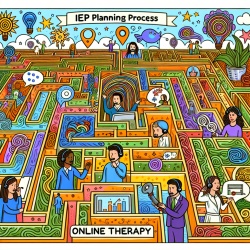Welcome to the World of Temperament and Character Inventory (TCI)
As a Special Education Director, understanding the nuances of personality can significantly enhance our approach to education and therapy. Today, we dive into the Greek version of the Temperament and Character Inventory (TCI), a tool designed to assess personality traits. The Greek version has been validated and standardized, offering new insights for practitioners.
Why the TCI Matters
The TCI, based on Robert Cloninger’s psychobiological model, measures personality through two major components: temperament and character. Temperament includes dimensions like novelty seeking, harm avoidance, reward dependence, and persistence. Character encompasses self-directedness, cooperativeness, and self-transcendence. These dimensions help us understand automatic emotional responses and individual differences in goals and values.
The Greek Version: A Closer Look
The study, titled Standardization and normative data of the Greek version of the temperament and character inventory (TCI), involved 734 Greek participants. The findings revealed that the Greek TCI has satisfactory psychometric properties, making it suitable for both research and clinical practice. The factor analysis showed that the temperament and character scales explained a significant portion of the variance, aligning with the original English version.
Practical Applications for Practitioners
Implementing the Greek TCI can enhance your practice in several ways:
- Personalized Education Plans: By understanding a student's temperament and character, educators can tailor learning strategies to fit individual needs.
- Improved Communication: Knowing a student's personality traits can improve communication between educators, therapists, and parents.
- Behavioral Insights: The TCI provides insights into behavioral tendencies, helping in managing classroom dynamics effectively.
Encouraging Further Research
While the Greek TCI offers valuable insights, further research can expand its applicability. Exploring its use in diverse educational settings or among students with special needs could provide deeper understanding and new strategies for intervention.
Conclusion
The Greek version of the TCI is a robust tool for assessing personality, offering educators and therapists a deeper understanding of their students. By incorporating these insights into practice, we can create more supportive and effective educational environments.
To read the original research paper, please follow this link: Standardization and normative data of the Greek version of the temperament and character inventory (TCI).










